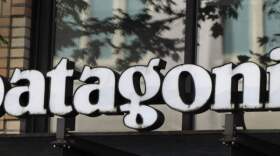-
Oil analysts who worked in Iraq say Iraqi oil sales had more protections after the U.S. invasion than Venezuelan oil sales today.
-
The Trump administration tried to end or privatize the government Energy Star efficiency program. But now Trump has signed a budget bill that fully funds the program and leaves it even stronger.
-
The announcement comes just days after NPR revealed the administration had secretly rewritten safety and environmental standards.
-
Strong winds can make it feel a lot colder than the thermometer suggests. Protect yourself by covering exposed skin and sheltering inside.
-
The wind chill in Easton, Pennsylvania, was below zero on Wednesday.
-
President Trump calls global warming "a hoax." As the U.S. faces more severe storms and extreme weather events, the New York Times' David Gelles describes what this means for climate change policy.
-
The winter storm left a record number of people in Nashville without power.
-
Freezing temperatures and heavy snow and ice hit a large portion of the United States over the weekend.
-
Freezing rain and sleet are weighing down trees, which are now toppling and wreaking havoc.
-
Before he was the CEO of the outdoor gear company Patagonia, Ryan Gellert was just a kid who liked going outside.
© 2026 Connecticut Public
FCC Public Inspection Files:
WEDH · WEDN · WEDW · WEDY
WEDW-FM · WNPR · WPKT · WRLI-FM
Public Files Contact · ATSC 3.0 FAQ
FCC Public Inspection Files:
WEDH · WEDN · WEDW · WEDY
WEDW-FM · WNPR · WPKT · WRLI-FM
Public Files Contact · ATSC 3.0 FAQ
Play Live Radio
Next Up:
0:00
0:00
Available On Air Stations






